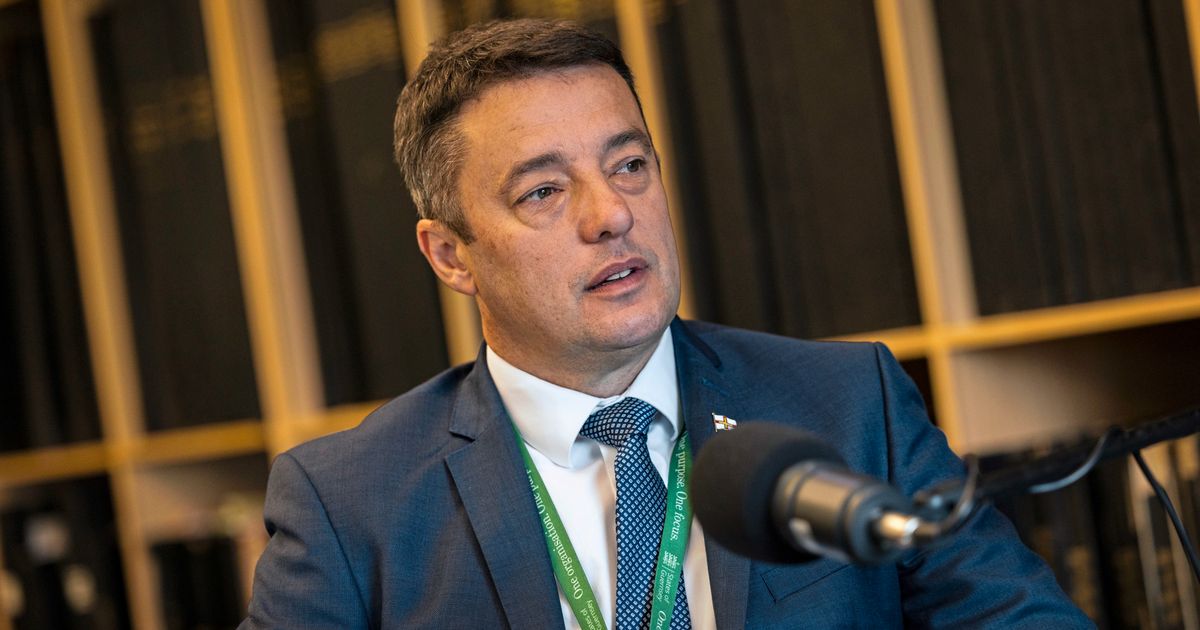Pay costs were £246m. in 2020 and would now be in the region of £320m. if they had increased in line with inflation over the past five years.
But they are forecast to hit nearly £350m. this year and £364m. has been allocated in the draft 2026 Budget submitted by Policy & Resources.
Mr Smillie said that after nine months leading the public sector he was clear that inflation-busting increases in the pay bill had to stop.
Listen to the full interview with Boley Smillie on the Guernsey Press Politics Podcast
‘It has to change. We can’t afford for that trend to continue. The island can’t carry on like that,’ he said.
During the same period, the number of employees working in public administration, excluding education and healthcare which are measured separately, increased by about 300, and it overtook financial services as the island’s largest employment sector.
However, by far the largest increase in pay costs has been in the health service, and overall pay costs have remained at about 50% of day-to-day spending, as expenditure on non-pay items has also outstripped inflation.
P&R’s draft 2026 Budget proposes an increase in day-to-day spending of inflation plus 1%, which includes £12m. of additional expenditure requested by committees.
‘The way in which the States budgets does not lend itself to addressing the issue,’ said Mr Smillie.
‘It’s very much about “this is what you did last year plus inflation and now let’s talk about what else we need to do”. We fundamentally need to take a much stronger look at what we’re doing now and how we can do it better.
‘Otherwise we’re just trying to reduce the gradient at which costs increase when we should be trying to reverse it.’
P&R’s draft 2026 Budget also includes new savings of £4m., with more efficiency cuts pledged in future years.
In a wide-ranging interview for the Guernsey Press Politics Podcast, Mr Smillie explained why he was confident that the vast majority of next year’s savings, and millions more in future years, could come from reducing consultancy costs, which grew sharply in the previous States term.
He ‘agreed wholeheartedly’ with a claim made recently by P&R president Deputy Lindsay de Sausmarez that States committees sometimes paid consultants to tell them what they already knew.
Tackling that, and restraining expenditure generally, would require better prioritisation across the States, he said.
‘If we have a culture of just wanting to do more and more and more and more, then it’s going to cost more and more and more and more, and the efficiencies that we can find get dwarfed,’ said Mr Smillie.
‘That’s where the relationship between the Assembly and the public service is so important. We really need to make sure we’re prioritising what’s necessary rather than what we would like to do.
‘If we can create an environment where funding the new things we might want to do, and I mean that largely politically, must at least in part be funded by the efficiencies we’ve gained from doing things better, then that’s quite an incentive actually to deliver reform.’
P&R has faced some criticism for presenting what it has called ‘a holding budget’ three months after committees were elected, but Mr Smillie hoped that people would understand that ‘change does not happen in nice annual increments – it sometimes takes a little bit longer than that’.

